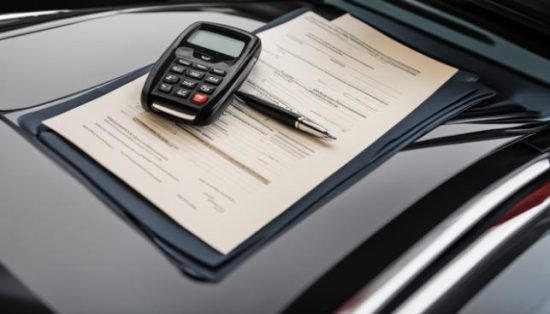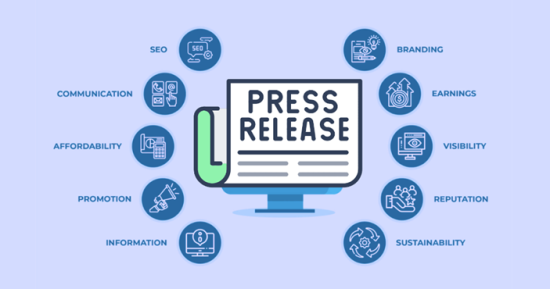
Are you excited about buying a new car but unsure about the car loan approval process? The timeline for car loan approval varies based on factors like your lender, creditworthiness, and application completeness. Understanding this timeline helps set realistic expectations for your car-buying journey. This article will explain the average approval time and key factors that influence it, helping you prepare and navigate the process smoothly. By the end, you’ll know what to expect and how to plan effectively for your car loan approval.
Understanding the Car Loan Approval Process
The car loan approval process is a series of steps that lenders follow to determine whether to approve your loan application. By understanding these steps, you can better navigate the process and increase your chances of a successful approval. The three key stages of the car loan approval process are the initial application review, income and employment verification, and credit score evaluation.

Initial Application Review
The first step in the car loan approval process is the initial application review. After submitting your application, the lender will assess the information provided to ensure that it meets their criteria. This includes verifying your personal details, such as your name, address, and contact information.
Income and Employment Verification
During the income and employment verification stage, lenders will review your financial situation and job stability. You will need to provide documentation, such as pay stubs or bank statements, to verify your income. Lenders will also confirm your employment status, including the length of employment and position held. This step helps lenders assess your ability to repay the loan.
Credit Score Evaluation
The final stage of the car loan approval process involves evaluating your credit score. Lenders use your credit score to assess your creditworthiness and gauge the level of risk in approving your loan. A higher credit score typically improves your chances of approval and may lead to more favorable loan terms. If your credit score is low, lenders may require additional documentation or collateral.
By understanding each stage of the car loan approval process, you can be better prepared to provide the necessary information and documentation to lenders. This will help streamline the process and increase your chances of a successful car loan approval.
Factors That Affect Car Loan Approval Times
When applying for a car loan, various factors can influence the amount of time it takes for your loan to be approved. Understanding these factors can help you manage your expectations and make informed decisions throughout the car loan approval process.

Types of Car Loan Lenders
Car loan lenders play a crucial role in the approval timeline. There are different types of lenders you can choose from, including banks, credit unions, online lenders, and car dealerships. Each type has its own processes and criteria for approving car loans.
Banks and Credit Unions
Banks and credit unions are traditional lending institutions that offer car loans. They typically have stricter requirements and longer approval times compared to other lenders. These institutions will consider your credit score, income, and other financial factors when evaluating your loan application.
Online Lenders
Online lenders have become increasingly popular due to their convenience and faster approval times. They often have streamlined application processes and may be more lenient with credit scores. Online lenders may also offer competitive interest rates, making them an attractive option for borrowers.
Car Dealerships
Car dealerships also act as car loan lenders, offering financing options to customers. While their approval processes may be faster, it’s important to carefully review the terms and interest rates they offer. Dealership financing may come with higher rates compared to other lenders.
Income and Employment Documents
When applying for a car loan, you’ll need to provide documentation related to your income and employment. Lenders typically require copies of your recent pay stubs, tax returns, and employment verification letters. These documents help lenders assess your ability to repay the loan.
Down Payment Amount
The amount of down payment you can provide also affects the approval timeline. A larger down payment can demonstrate your financial stability and reduce the amount you need to borrow. This can make the loan more attractive to lenders and potentially expedite the approval process.
By considering these factors, you can better navigate the car loan approval process and improve your chances of securing timely approval. Next, we’ll discuss the timing differences between pre-approval and final approval, giving you a clearer picture of how long it takes to get approved for a car loan.
Pre-approval vs. Final Approval: Timing Differences Explained
Understanding the distinction between pre-approval and final approval is crucial when applying for a car loan. Pre-approval, obtained within a few business days, gives an estimate of your loan eligibility but doesn’t guarantee a loan. Final approval occurs after selecting a vehicle and providing full documentation, with the timeline varying based on application complexity and lender processes. Pre-approval helps gauge eligibility, while final approval involves a thorough evaluation. Factor in both timelines for a smooth car buying process.
Why Lender Choice Matters for Approval Time

The choice of your car loan lender can significantly impact the approval time. Different lenders have their own underwriting timelines and processes. In this section, we will explore the pros and cons of comparing big banks, credit unions, and online lenders regarding car loan approval. We will also delve into the concept of lender underwriting timelines and how it can affect the approval process.
Comparing Big Banks, Credit Unions, and Online Lenders
When it comes to choosing a car loan lender, you have various options to consider. Big banks, credit unions, and online lenders are some of the most common choices. Each option comes with its own set of advantages and disadvantages.
- Big Banks: Big banks often have a well-established reputation and a wide range of financial services. They may offer competitive interest rates and flexible repayment options. However, the approval process can be lengthy due to their extensive underwriting procedures.
- Credit Unions: Credit unions are member-owned financial institutions that can offer personalized service and competitive rates. They may have a more relaxed underwriting process, resulting in quicker approval times. However, eligibility requirements and membership restrictions may apply.
- Online Lenders: Online lenders provide convenience and accessibility through their digital platforms. They often have streamlined underwriting processes, which can lead to faster approvals. However, interest rates and fees may vary, and the level of customer service may differ compared to traditional lenders.
Before making a decision, it’s essential to carefully consider the advantages and disadvantages of each type of lender based on your specific needs and preferences.
Understanding Lender Underwriting Timelines
Lender underwriting timelines refer to the duration it takes for a lender to review your loan application and make a decision. This process involves evaluating your creditworthiness, income verification, employment stability, and other factors. Each lender has its own underwriting timelines, which can range from a few days to several weeks. Factors that may influence underwriting timelines include the lender’s internal processes, loan volume, and the complexity of the application.
Online Car Loan Applications: Are They Faster?
Applying for a car loan online is increasingly popular due to its convenience and efficiency. Online applications save time by allowing you to apply from home and submit all required information digitally, avoiding the hassle of visiting multiple lenders and dealing with paper forms. Automated systems quickly evaluate eligibility, providing decisions in minutes or hours instead of days. This expedited process helps you make informed car-buying decisions without unnecessary delays. Overall, online car loan applications streamline and speed up the loan approval process.
How Long Does It Take to Get Approved for a Car Loan?
By now, you should understand the car loan approval process and its factors. On average, car loan approval in the U.S. takes 24 to 48 hours after submitting a complete application. Online lenders often offer faster decisions, sometimes within minutes, but their overall funding process might take longer due to verification requirements. Ensuring all required documents are ready and accurate can significantly reduce approval times. Next, we’ll discuss the specific documents needed to expedite the car loan approval process.
Documents You Need to Speed up Car Loan Approval
The documents you submit during the car loan application can significantly impact the approval timeline. In order to expedite the process and increase your chances of getting approved quickly, it’s important to have all the necessary documents ready. Here are the key documents you need to gather:
Proof of Identity and Residency
One of the essential documents you’ll need is proof of your identity and residency. This typically includes documents such as your driver’s license, passport, or state-issued ID. Additionally, you may be required to provide proof of your current address, such as utility bills or a lease agreement.
Income Verification Documents
Another crucial aspect of the car loan approval process is verifying your income. Lenders need assurance that you have a stable and sufficient income to repay the loan. To speed up approval, gather documents such as your pay stubs, bank statements, or tax returns. Providing accurate and up-to-date income verification will help streamline the approval process.
Vehicle Information and Insurance

You’ll need to provide specific details about the vehicle you plan to purchase. This includes the make, model, year, and Vehicle Identification Number (VIN). Additionally, most lenders require proof of insurance coverage for the vehicle. Make sure to have these documents in order to expedite the approval process.
By having all the required documents readily available when applying for a car loan, you can help speed up the approval process. Remember to double-check the lender’s specific requirements to ensure you have everything they need. Having these documents organized and ready to submit will increase your chances of a fast and smooth car loan approval.
Average Timeline from Car Loan Application to Driving Off the Lot
Understanding the car loan approval timeline helps make the process smoother and less stressful. On average, it takes several days to a week from application submission to driving off the lot. Initial document review by the lender takes a couple of days, followed by a thorough evaluation of your credit and financial factors. Finalizing details and paperwork takes another day or two, with fund transfer coordination adding an additional day or two. Preparation and choosing an efficient lender can expedite this process.
FAQs on Car Loan
Are online car loan applications faster?
Online car loan applications can often be faster compared to traditional methods. They offer convenience and efficiency, allowing you to complete the application from the comfort of your own home. The online application process is designed to streamline the approval process and reduce paperwork, potentially saving time in the overall approval timeline.
What is the average time it takes to get approved for a car loan?
On average, the approval process for a car loan can take anywhere from a few hours to a few days. However, keep in mind that this is just an estimate, and the actual time can vary depending on individual circumstances and the lender’s processes.
What documents are required to speed up the car loan approval process?
To speed up the car loan approval process, you will typically need to provide proof of identity and residency, income verification documents, and vehicle information and insurance. Having these documents ready and organized when applying for a car loan can help expedite the approval process.








